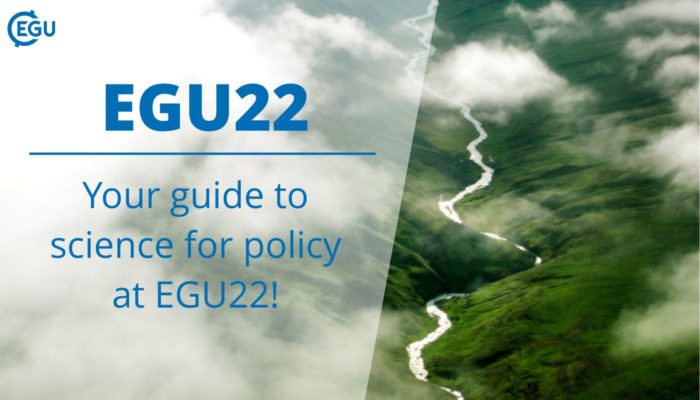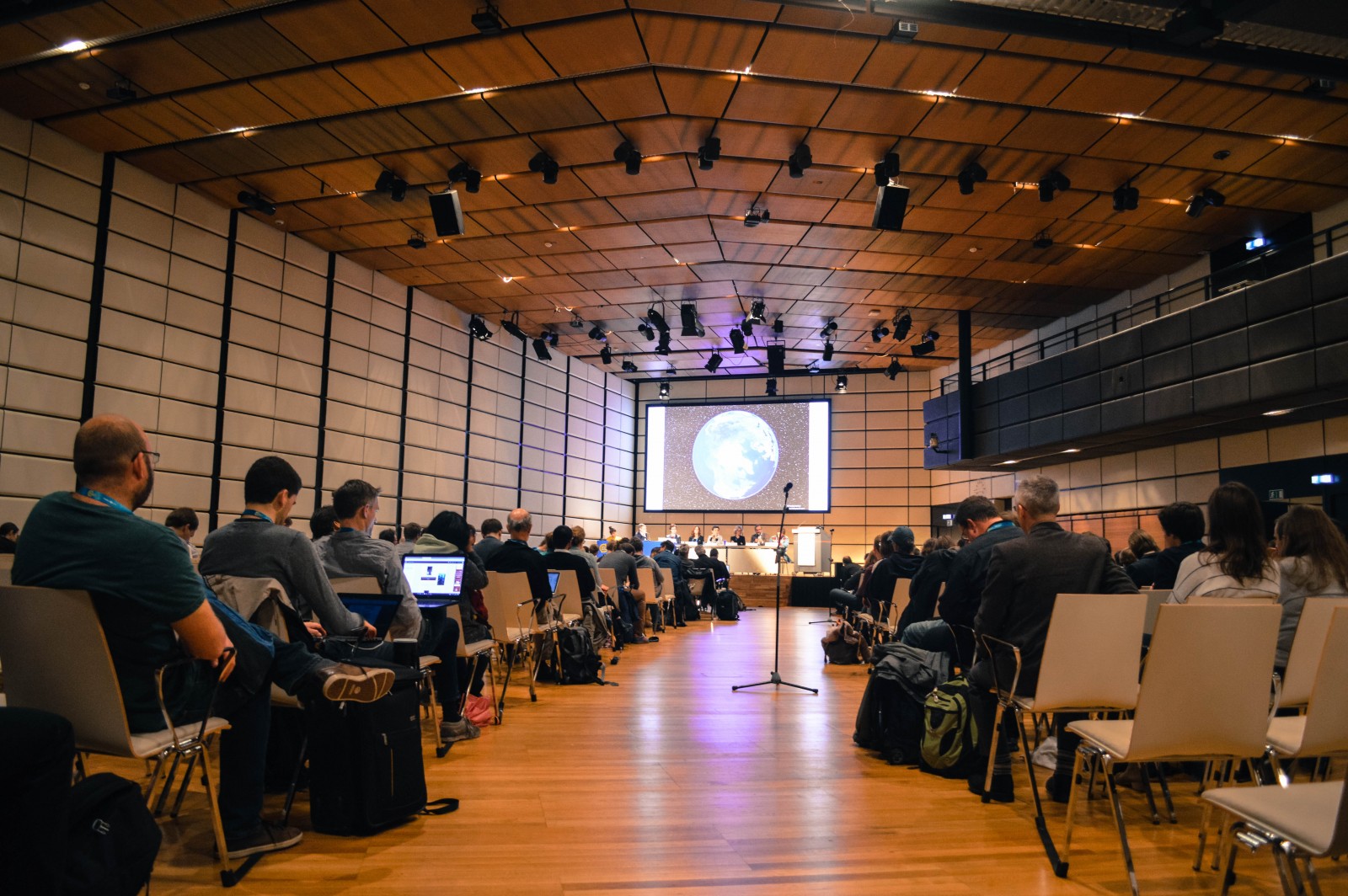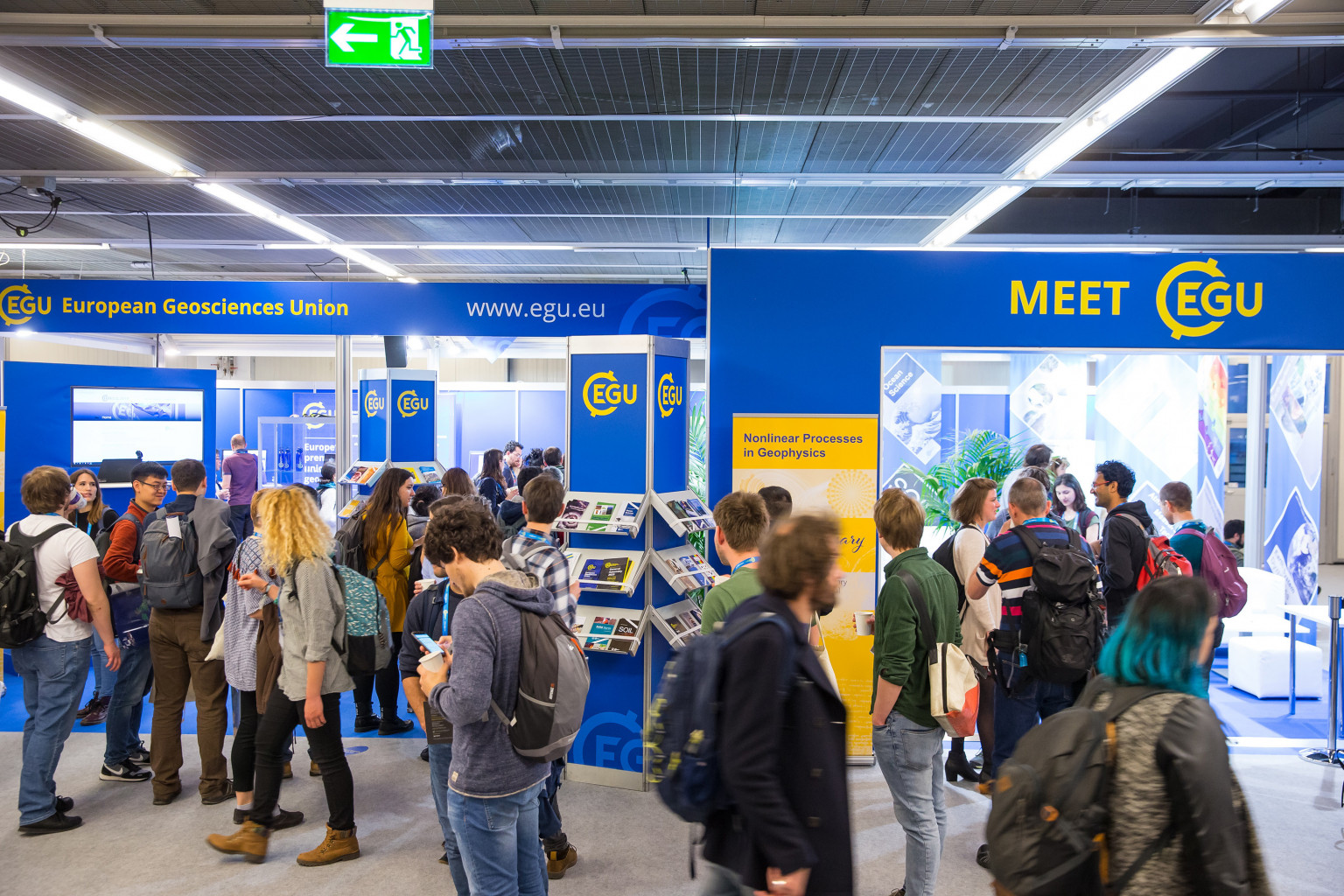
Each year, the EGU General Assembly offers a huge array of scientific sessions as well numerous non-scientific sessions and activities that you can participate in to expand your network, diversify your expertise, and develop new skills! 2022 will be the the first time that EGU offers a hybrid General Assembly with options to join these sessions both in-person and virtually. This next How to EGU22 blog post highlights EGU22’s science for policy-related initiatives and how you can engage with them online and in Vienna!
Science for policy: Getting started
EGU’s policy-related Short Courses are great for those who’d like their research to have a greater impact and who are interested in learning about how to engage with the policymaking process! Unlike the event’s scientific sessions, Short Courses focus on developing skills and abilities and tend to be more interactive. It’s a good idea to check how each Short Course will be run before adding it to your personal programme because these sessions will use a mixture of in-person, virtual, and hybrid formats.
The role of scientific institutions in policymaking
Wednesday 25 May, 08:30-10:00 CEST
This Short Course will feature one of the authors of the European Commission Joint Research Centre’s Science for Policy Competence Framework for Researchers and unpack the skills, knowledge, and attitudes that scientists can build upon to engage in the policymaking process more effectively.
Writing the IPCC AR6 Report: Behind the scenes
How to influence policy through engaging with Parliaments
Wednesday 25 May, 13:20-14:50 CEST
Participants in this session will learn about how national and supranational parliaments use evidence in their policymaking processes, how science advice and technology assessment mechanisms draw on research, and how they can get involved.
Practical science for policy examples and discussions
All Union-wide sessions will be accessible both virtually and in-person! There are a couple of these sessions that will provide practical examples of how science has been used in the policymaking process and where more research is needed in the future, including:
The role of the geosciences in preserving and restoring biodiversity
Monday 23 May, 13:20-16:40
Preserving and restoring biodiversity are incredibly complex tasks that will require both scientific expertise and intersectoral collaboration. This Union Symposium will outline recent European biodiversity targets and legislation, what’s coming next, how geoscience is being used to find solutions, and where more research is needed.
Climate change is a code red for humanity: What does this mean for the earth science community?
Friday 27 May, 08:30-10:00 CEST
This Great Debate examines the role of the earth science community in solving the greatest challenge humanity that has ever faced and debate whether we have the skills, agility and the resources we need.
Focusing in on specific policy topics
There are also a number of scientific sessions scattered throughout EGU22’s programme that highlight the importance of policy in specific scientific disciplines. These sessions will all take a hybrid format and are likely to be of interest if you’d like to know more about how you’re specific area of research or expertise can relate to the policymaking process. There are many of these sessions throughout the programme but a few examples include:
HS1.1.1: The science-policy interface in hydrology
Monday 23 May, 15:10–16:40 CEST
This session will address the skills needed to facilitate the uptake of hydrological sciences in policy formulation and implementation. Not only will it feature presentations from policy experts but also provide participants with the opportunity to ask questions on specific policy-related topics.
CL3.2.2 Towards a net-zero world: remaining carbon budgets, mitigation pathways, zero emissions commitment, and implications for policy
Monday 23 May, 17:00–18:30 CEST
This session aims to further the understanding of the climate response under various emission scenarios, with particular interest in emission pathways entailing net-zero targets and meeting various levels of warming.
ITS4.4/ERE1.10 Nature-based solutions and climate engineering in climate governance
ITS3.1/SSS1.2 Participatory citizen science and open science as a new era of environmental observation for society
Friday 27 May, 08:30–11:05 CEST
Both open science and citizen science pose great challenges for researchers to facilitate effective participatory science, yet they are of critical importance to modern research and decision-makers. This session will aim to answer a number of questions including which approaches and tools can be used in Earth and planetary observation? and what are the biggest challenges in bridging between scientific disciplines and how to overcome them?
Learn about EU funding programmes and have your say
There are a number of session that you can attend if you’re interested in learning more about the Horizon 2020 and Horizon Europe, the EU’s Funding Framework Programmes.
SC2.3 How to Find Funding
Tuesday 24 May, 08:30–10:00 CEST
Finding funds can be challenging in academia, be it during PhD, or after that. A great proposal or just a great idea does not guarantee success, instead, it involves developing skills and exploring the paths which can lead to securing funds. This Short Course will provide guidance on the research and financial aspects of proposal writing and allow participants to ask advice from the experts.
SPM24: Have your say: Horizon 2020 and Horizon Europe
Monday 23 May, 15:10–16:40 CEST
Learn about the Horizon 2020 And Horizon Europe funding programmes from those working within the Commission and join in on the discussion about what makes them effective and what could be improved in this Splinter Meeting!
Ask a Policy Expert
As an EGU22 participant, you’ll be able to engage with more than just sessions. There will be activities happening both online and in-person with opportunities to network with those working at the science-policy interface throughout the week! Something new to this year’s General Assembly is the hybrid Ask a Policy Expert initiative which enables participants to meet those working with policy (either in-person or virtually) and ask them specific questions. Registered EGU22 participants can submit their policy-related questions here and be paired with an expert who is able to discuss them. Please note that these pairings are limited and will be offered on a first-come, first-served basis! Throughout EGU22, in-person participants will also be able to drop by the EGU’s Science for Policy Help Desk at the EGU Booth every day from 11:00-12:00 to further discuss their questions and how they can more share their expertise more effectively.
Even if you’re just a bit curious about science for policy, it’s worth adding a couple of the policy-related activities to your #EGU22 schedule! If you have any further questions about the Assemblies science for policy sessions and activities, please don’t hesitate to get in touch via policy@egu.eu.


